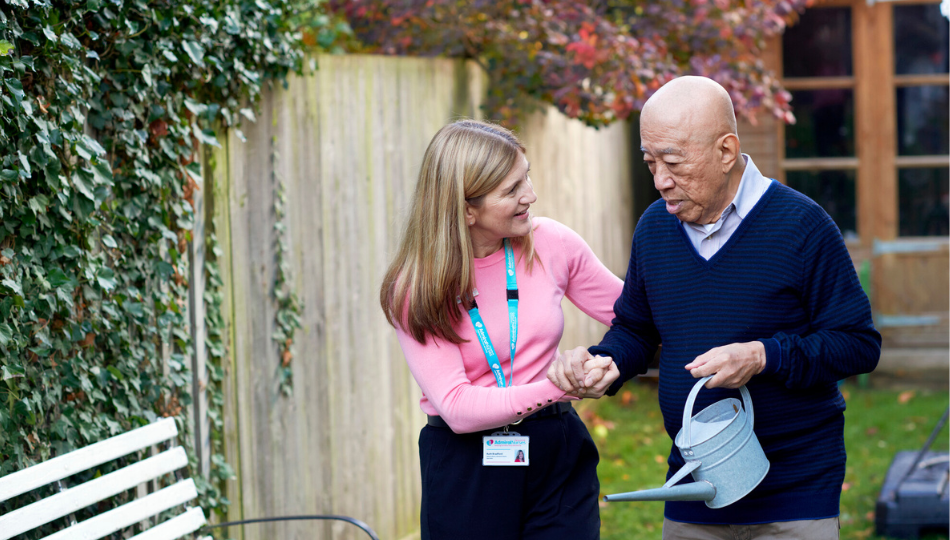
Admiral Nurse Dementia Helpline
Call or email our Dementia Helpline/Alzheimer's Helpline for reassuring and practical advice from our specialist team of Admiral Nurses.
In June 2018 the National Institute for Health and Care Excellence (NICE) published guidance on dementia[1] – which was the second dementia guideline – refreshing and replacing the original one published in 2006. This guideline is the key resource around diagnosis and management of dementia. It covers off a number of recommendations around training for dementia care staff as well as helping people to live with dementia now and in the future.
I have been privileged to be a member of both the original and the refreshed dementia guideline committees, and have reflected on many changes and developments over the years. Both guidelines were quite revolutionary in their scope in that they covered both the health and social care of dementia whereas, traditionally, NICE guidance has focused largely on health interventions. This gives a clear message that dementia affects people on a range of levels; physically, mentally and socially.
With regard to my own research interests in end of life care in dementia, it is clear that there was a lack of guidance on how to approach this area. However, I know that these new guidelines have improved the situation greatly, and not just for end of life care. A huge growth in dementia research has followed and many of the most prominent researchers in the field are now based in the UK which is very heartening.
The guidelines contain new advice on a number of areas, including support for people with dementia and their carers, end of life care and staff training. However, of most interest to me and Admiral Nursing are the recommendations that help in developing a case management approach for families affected by dementia – an approach that lies at the heart of the Admiral Nurse model. These include:
[1] NICE (2018) Dementia: assessment, management and support for people living with dementia and their carers. https://www.nice.org.uk/guidance/ng97/chapter/Recommendations#supporting-carers

Call or email our Dementia Helpline/Alzheimer's Helpline for reassuring and practical advice from our specialist team of Admiral Nurses.

Help us raise vital funds, improve care and support for families facing dementia and spread the word about our specialist dementia nurses.